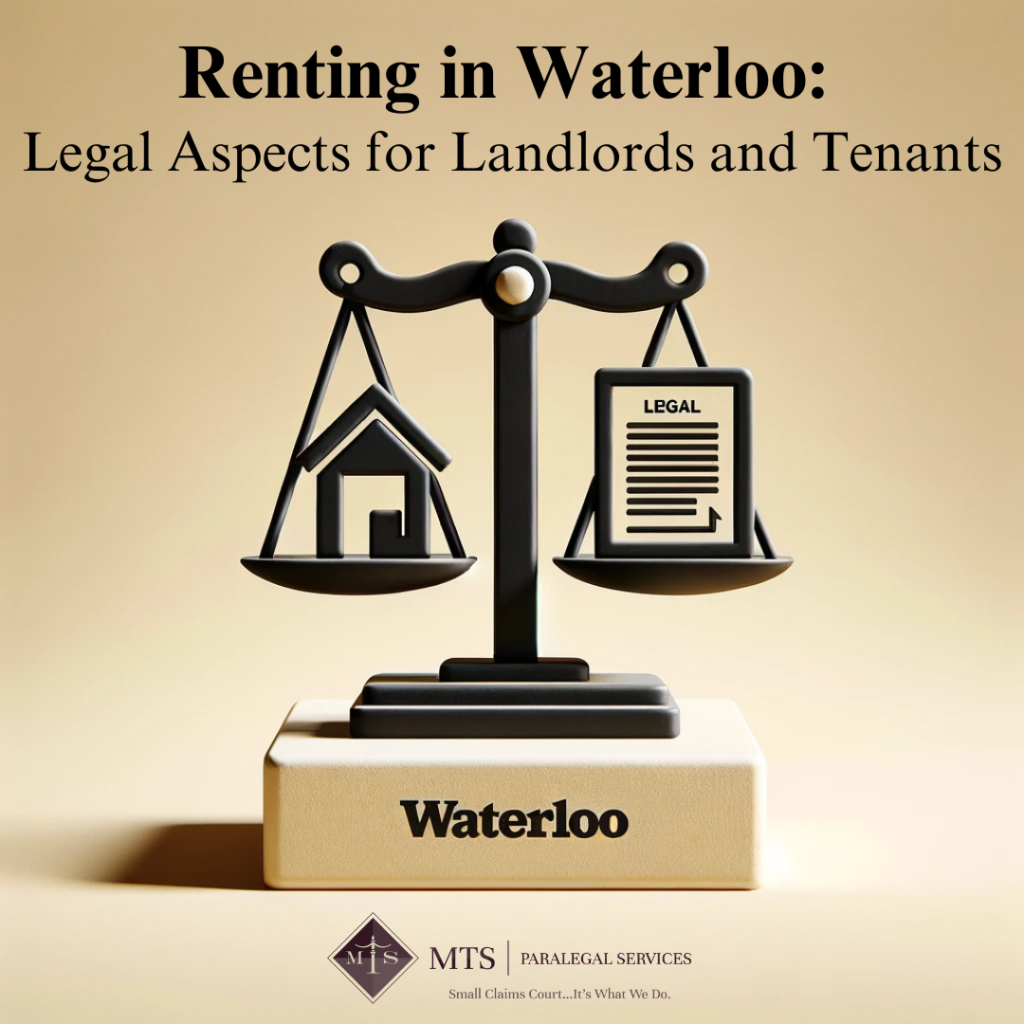
Renting in Waterloo: Key Legal Aspects for Landlords and Tenants
Renting a property in Waterloo comes with various legal responsibilities for both landlords and tenants. Understanding these obligations can help ensure a smooth rental experience, prevent disputes, and protect your rights. Here are some key legal aspects to consider when renting in Waterloo.
Understanding the Residential Tenancies Act
The primary legislation governing rental agreements in Ontario, including Waterloo, is the Residential Tenancies Act (RTA). This Act outlines the rights and responsibilities of landlords and tenants, covering everything from rent increases to maintenance obligations. Both parties should familiarize themselves with the RTA to avoid legal pitfalls. The RTA provides a comprehensive framework to ensure fair treatment and clear guidelines for both parties involved in Waterloo rentals. By understanding this Act, landlords and tenants can navigate their rights and responsibilities with greater confidence, reducing the likelihood of misunderstandings and disputes.
Rental Agreements
A rental agreement or lease is a crucial document in the renting process. It should clearly outline the terms and conditions of the tenancy, including the rent amount, duration of the lease, and any specific rules regarding the use of the property. Both landlords and tenants should carefully review and understand the lease before signing. In Waterloo rentals, having a well-drafted rental agreement is vital as it serves as a binding contract that protects the interests of both parties. A detailed lease can prevent conflicts by setting clear expectations from the outset, ensuring both parties are aware of their duties and rights within the rental relationship.
Rent and Deposits
Under the RTA, there are specific rules regarding rent payments and security deposits. Landlords can only request a deposit equivalent to one month’s rent, which can only be used as the last month’s rent. Additionally, rent increases are regulated and can only occur once every 12 months, with proper notice. For Waterloo rentals, these regulations help maintain a balance between the needs of landlords to manage their properties effectively and the rights of tenants to have predictable and fair rent practices. Understanding these rules helps both parties manage financial expectations and avoid potential legal issues related to rent and deposits.
Maintenance and Repairs
Landlords are responsible for maintaining the rental property in a state of good repair, complying with health, safety, and housing standards. Tenants, on the other hand, are responsible for keeping the unit clean and notifying the landlord of any necessary repairs. Understanding these responsibilities can prevent conflicts and ensure a habitable living environment. In Waterloo rentals, adhering to maintenance and repair obligations is crucial for the well-being of tenants and the longevity of the property. Regular maintenance checks and prompt attention to repairs not only uphold the standards set by the RTA but also foster a positive landlord-tenant relationship.
Terminating a Tenancy
There are specific procedures for terminating a tenancy under the RTA. Tenants must provide written notice to end a tenancy, typically 60 days before the lease ends. Landlords can only terminate a tenancy for specific reasons, such as non-payment of rent or if they require the unit for personal use. It’s important to follow these procedures to avoid legal complications. For those involved in Waterloo rentals, understanding the correct procedures for terminating a tenancy ensures that both parties can transition smoothly without facing unnecessary legal challenges. Proper notice and adherence to legal grounds for termination protect the rights of both landlords and tenants.
Resolving Disputes
Despite the best efforts, disputes can arise. The Landlord and Tenant Board (LTB) is the body that handles such disputes in Ontario. Both landlords and tenants can apply to the LTB for resolution of issues like rent arrears, eviction applications, or maintenance complaints. Understanding the process can help resolve disputes more efficiently. In the context of Waterloo rentals, knowing how to navigate the LTB process is essential for promptly addressing conflicts and finding resolutions that are fair and legally sound. This knowledge empowers both landlords and tenants to seek justice and maintain harmonious rental relationships.
Reach Out to MTS Paralegal Services
Renting in Waterloo involves navigating various legal requirements and responsibilities. Whether you are a landlord or a tenant, staying informed about these key legal aspects can help ensure a positive rental experience. For personalized advice and assistance with any rental issues, call MTS Paralegal Services. Tim is here to help you navigate the complexities of rental laws in Waterloo. Whether you need help drafting a lease, understanding your rights under the RTA, or resolving a dispute, he is dedicated to providing you with the guidance and support you need for successful Waterloo rentals.
This content does not constitute legal advice. For up-to-date guidance or legal advice specific to your situation, please contact MTS Paralegal Services Professional Corporation or call (226) 444-4882.
